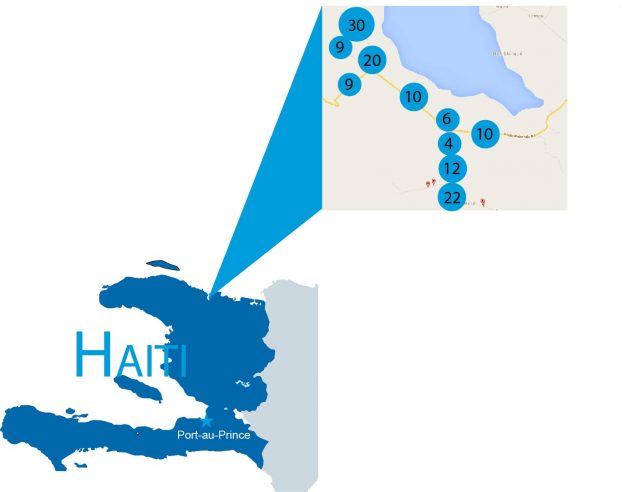As C2C explores potential locations for new clinics, we depend on community feedback and data. Collecting this information is never easy, and C2C faces many logistical challenges as we work to understand each community.
For example, in Haiti, most households don’t have street names or house numbers, which makes precise data collection and tracking difficult. When we interview families about their healthcare needs, it’s important that we’re able to spot trends and begin to understand the region as a whole.
To build a full picture of a community, we are now able to collect data on hand-held tablets that pinpoint the GPS coordinates of each household we visit. We train and deploy survey-takers to different neighborhoods, and ensure that they speak with more than 500 households. The tablets’ GPS technology allows us to verify data to be sure that we’re getting the best possible market information. The interaction between any potential patient and survey-taker is personal and private, and we train our survey-takers to treat family health information with respect and confidentiality.
Our new technology allows us to collect much more local information than we have been able to capture in the past with pen and paper online lipitor. We know that this more detailed and reliable information will not only make it easier to select a community for our next clinic; it will also translate into services better tailored to meet the specific needs of our new patient population.
